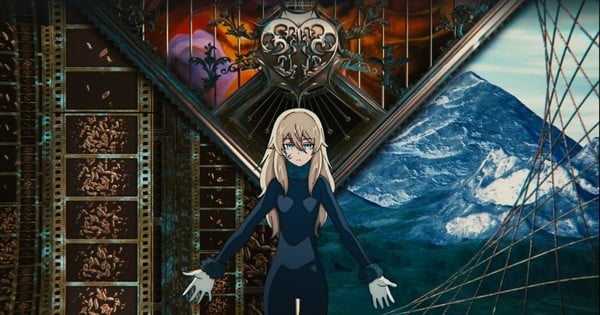Curated From www.animenewsnetwork.com Check Them Out For More Content.
How would you rate episode 9 of
Shy ?
Community score: 4.2

© 実樹ぶきみ(秋田書店)/SHY製作委員会
Half of this episode deals with Pepesha confronting the uncomfortable specter of her mother as a person rather than a parent, and the other half is about Teru fighting a prop comic. That’s a good balance. I like that Shy doesn’t take itself too seriously. Superhero fare, at its core, is supposed to be fun. You can dress it up however you want, but at the end of the day, it’s about wearing silly costumes and inventing new ways to punch bad guys—you know, like JoJo’s Bizarre Adventure. That doesn’t mean I don’t also appreciate Shy‘s reach towards harsher psychological subjects. In that regard, I think it’s been doing better than most. But you still have to have fun.
That makes Kufufu a welcome dash of clownishness in the story’s otherwise dark and dour segment. The jester villain is a trope we all know and perhaps begrudgingly love, and Kufufu leans into her role with the cartoony flourish afforded by her 2D form. Naturally, she seems to focus on prop comedy, i.e., the most universally reviled form of comedy, so she’s supposed to be irritating. While it can be difficult to write a character who sucks just enough without going overboard, I think Shy threads the needle here. Rina Hidaka‘s effervescent performance helps too, and Teru also turns out to be the perfect straight woman for Kufufu’s gags. She’s not exasperated as much as she’s bewildered and befuddled, which is the correct way to handle it. We don’t need an audience insert groaning on our behalf. We need to see Teru be adorably confused and helpless.
However, Kufufu is only there as a backup for Tzveta. She’s pretty needy for backup and quite infatuated with the ice princess, but Tzveta remains the focus of both the battle and the episode. In fact, all of this week’s proceedings occur inside her “heart,” or rather, within the freezing Amarariruku domain she’s summoned around the orphanage. Teru and Pepesha don’t completely understand the mechanics of this closed-off space, but the metaphorical meanings are evident. If you’ll allow me to return to Evangelion‘s well, it’s like an inverted AT Field. Tzveta has walled off her heart, but instead of keeping others out, she’s trapped a select few inside—with the caveat of her intention to use and remold them to suit her desires.
The childishness of Amarariruku’s founding principles comes through Tzveta’s actions. While she acts cold and distant, she’s throwing a tantrum. She doesn’t allow anyone to leave, and she brainwashes the trapped civilians to fall in line with her commands. Again, it’s ambiguous how much she’s preying on the inherent darkness within everybody and how much she’s using her own darkness to override their thoughts and emotions. I think that ambiguity works here, though. People are complicated, and even the most “normal” of us will do things without a complete understanding of our motivations. Even Pepesha’s role in this charade isn’t entirely clear. I assumed at first that this was all a setup to prey on her unresolved relationship with her mother; Tzveta brings out barbs that hook onto Pepesha’s anger like an electromagnet.
The reality is more complicated and more interesting. Tzveta isn’t just a lookalike golem created to prod at the sore spots in Pepesha’s soul. She’s more akin to a reincarnation, with her motive at the orphanage similar to Pepesha’s own. She breaks down the heart into three components: the world, emotions, and memory. These distinctions are self-explanatory, if arbitrary, but they align with Amarariruku’s childish M.O. of simplifying things for villainy’s sake. In Tzveta’s case, she believes her missing piece is memory, so her riling up Pepesha is just a consequence of their relationship. Pepesha’s memories of her mother are fraught with both love and loss, so they’re naturally a sore spot for her.
Tzveta’s self-actualization is even more involved than that, though. Note that this incarnation of her is young. She hasn’t been brought back as Pepesha’s mother; she’s been brought back as Letana, a girl who left the comforting walls of her orphanage and found a cold world that largely rejected her. She may have eventually become a loving mother, but that was only one facet of her life. While parents often put on a strong face for their children, they’re every bit as flawed and fallible as any other person. Letana battled demons and doubt even as she raised her little Pesha, and it’s this darkness, presumably, that Stigma plucked out and molded into Tzveta. Pepesha, therefore, will need to confront her mother with their roles reversed. She’s the adult in the room now. She will have to acknowledge the world and circumstances that hurt Letana/Tzveta and find a way to comfort her while reconciling with her own demons. That’s a tall order, but she’s lucky to have a sidekick with as much emotional intelligence as Teru—assuming she can escape a clown’s clutches.
We’re only partway through this conflict, so much will rest on how it gets reconciled, but I like how Shy set up the board this week. These characters are wading through subtly layered psychological territory, and there are a lot of different avenues it could choose to explore next week. It’s ambitious, and I want to see these characters rise to the challenge.
Rating:
Shy is currently streaming on
Crunchyroll.
Steve is on Twitter while it lasts. He is a recovering shy kid. You can also catch him chatting about trash and treasure alike on This Week in Anime.

